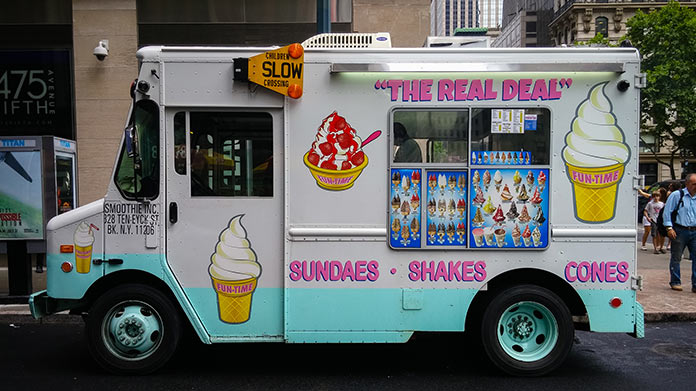Terms you didn’t know may be racist
It began with an article posted on the NPR website. It seems that the catchy tune played by many ice cream trucks back in the day, “Turkey in the Straw,” actually was used by one songwriter for his lyrics of racial hatred.

The facts seem fairly obvious, but that does not mean today’s ice cream vendor, or purchaser, is a racist or even knows about the melody’s dark past (pun intended).
What set me on this road, quite aside from my love of ice cream, was a term used by sports columnist Marcus Hayes, who was a colleague and friend at the Philadelphia Daily News.
Marcus is very well informed and, like most columnists, right about half the time. He is also liberal, very opinionated, and biracial, so I was a little surprised by his use of the term “the jig was up” in a Sunday column.
The term is racist, at least for some people.
I looked it up on The Root Black website, and, yup, there it was — along with a mess more that I am sharing here.
Why am I doing this? Education, mostly, and also a caution that some terms you use could be similarly tainted, and could lead to you being called a racist.
No, I am not calling Marcus a racist, nor anyone who uses the following terms. They are only racist if they know the terms are offensive and use them anyway. Most have been in the lexicon so long they have lost their racist tinge. The following is from The Root.
—
These seemingly innocuous terms have questionable origins or histories related to race, and there’s probably plenty more where they came from.
1. “The peanut gallery”: Just a dismissive term for hecklers or critics, right? Wrong. You’ll probably never use this phrase in reference to a group of Black people again once you know its history. It originally referred to the balconies of segregated theaters, where African Americans had to sit. (Why “peanut”? Apparently, peanuts were introduced to America during the slave trade and thus became associated with blacks.)
2. “The jig is up”: Although this expression is used today to describe a joke or scheme that has been revealed or foiled, you’re the one whose fun might end quickly if you say it to the wrong person. This hasn’t been proved beyond a doubt, but many believe the saying was used in its original form by some in the American South to refer to the lynching of a black person. Replace "j" with "n" and you’ll get it.
3. “Call a spade a spade”: For more than 500 years, this expression has meant “to tell it like it is.” But it wasn’t until the Harlem Renaissance of the 1920s that “spade” became a disparaging code word for Black people. It’s probably best to retire this phrase forever.
4. “Sold down the river”: Today, if people say they’ve been “sold down the river,” they probably mean they’ve been betrayed. But when the phrase originated, that betrayal was a lot more serious. During slavery, being “sold down the river” was literal. Slave owners would sell their slaves and send them via the Mississippi or Ohio River to plantations in the Deep South, where plantation conditions were much worse.
5. “Eeny, meeny, miny, moe”: Learning the history of this phrase might taint your childhood memories. Heard at playgrounds around the world, this counting-out expression comes from a classic children’s rhyme dating back to the 19th century. Some early versions include the lyric, “Catch a n—ger by the toe.” The n-word was replaced by “tiger” in later years. Not quite as cute now, is it?
6. “Cotton-picking”: “Are you out of your cotton-picking mind?” We’ve all heard the phrase, but the term has an ugly, if debatable, past. Some say it was used to denote the inferior status of poor farmers and field hands in the Southern states, many of whom were slaves. We’ll just say you’d have to be crazy to say this to anyone who might associate it with that history.
7. “Spook”: How can this word be so bad? If you’ve ever celebrated Halloween, you’ve used some version of it. What is now used regularly to mean “ghost” or to frighten is also a slur akin to “n—ger.” It may have its origins in the perception that dark skin blends into the night, making black people ghostlike. Scarily racist.
8. “Grandfather clause”: You may have been lucky enough to be “grandfathered” into your cellphone plan, but this term has an ugly past. During the 1890s, half a dozen Southern states enacted laws to defy the 15th Amendment and prevent Black people from exercising their newfound right to vote. In these states, you were allowed to vote only if your parents or grandparents were able to vote before the year 1867—which was conveniently before Blacks had access to the ballot. These days we all have equal rights to this phrase, but it’s probably best if we agree to go ahead and drop it.



